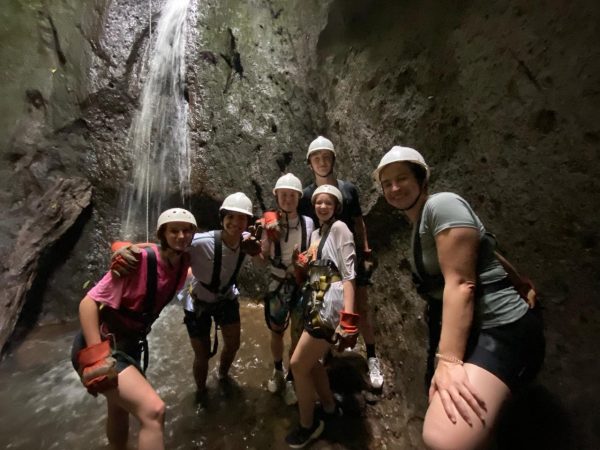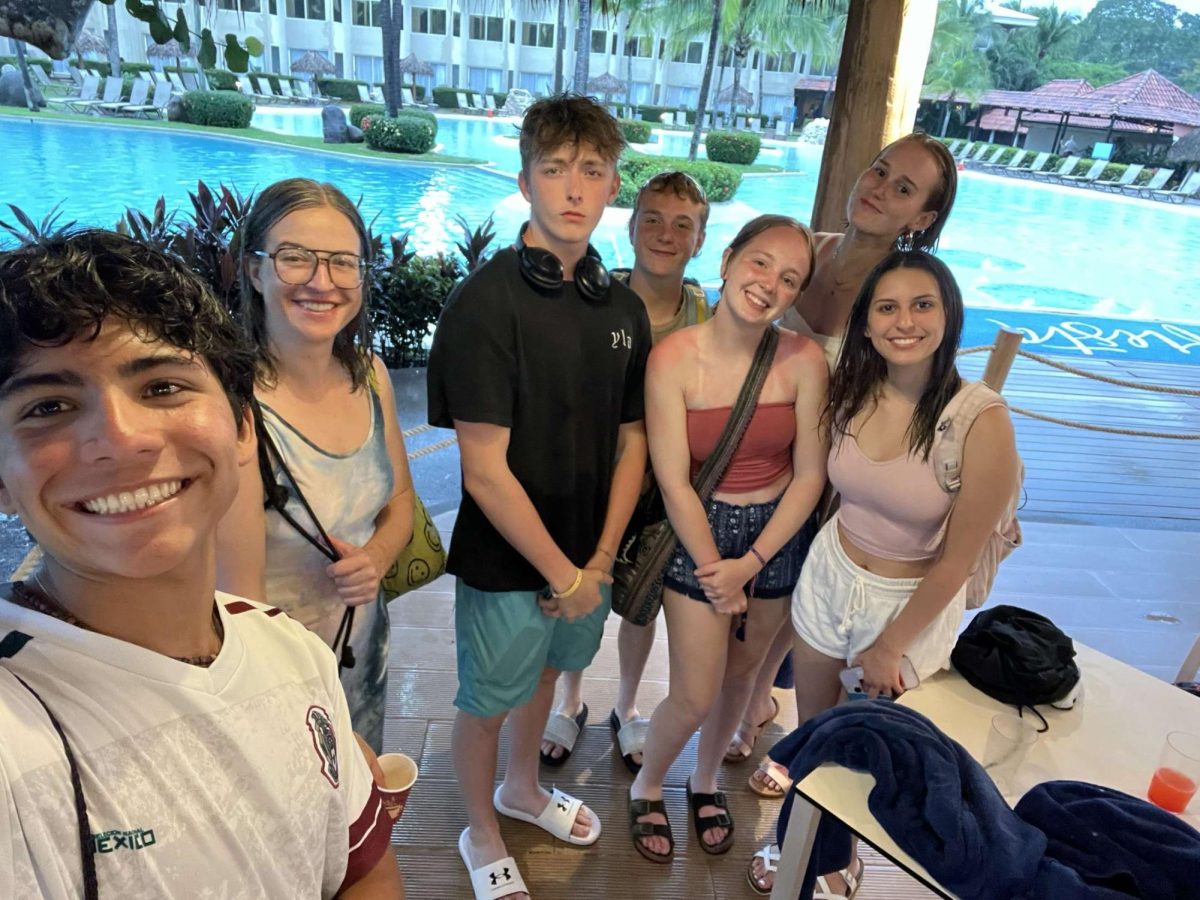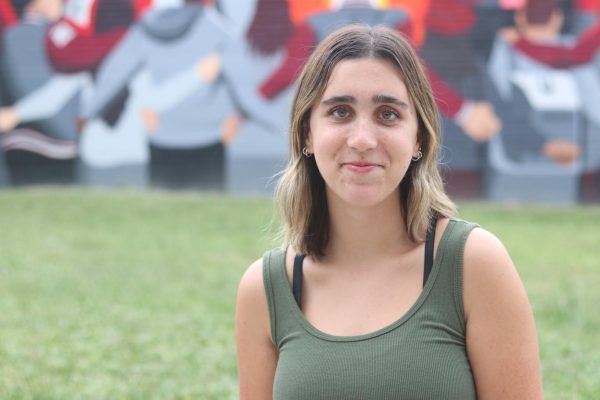Taking care of animals, ziplining, and trivia nights were just a few of the many activities students did on the Lawrence High Costa Rica exchange. Spanish teacher Carolyn McKanna led the trip, accompanying 6 LHS students. McKanna said she wanted to help these kids get immersed in the language and have something to motivate them.
“There’s a lot of competition for electives,” McKanna said.”If we want to keep our program strong, then we need to have something that keeps kids in our classes.”
In January 2023, McKanna helped the other side of the exchange. Students came from San Ramon, Costa Rica and visited both Seattle and Lawrence. Senior Emma Gadzia quickly became interested in the trip, “I was in Señora McKanna’s Spanish class and she told us about it and I really wanted to go,” Gadzia said. “Also because I was a host of the exchange students when they came here. So I was already connected to the program.”
For the first half of the trip, the LHS students stayed with Costa Rican hosts. Junior Armando Romero-Perez felt welcomed immediately into his temporary home.
“I thought they were absolutely amazing. They felt like my aunt and my uncle, and my host was like my cousin,” Romero-Perez said. “There wasn’t a big language barrier because I speak Spanish. So it felt like home.”
Romero-Perez talked about his life in America with his host, and they exchanged stories. McKanna enjoyed having the students stay with hosts so she didn’t have to monitor them 24/7.
“It was pretty relaxed. I stayed with a family as well. I lived with the teachers who came here with the students, so it was like my counterparts,” McKanna said. “I hung out with them and I would go visit the students at their Costa Rican school.”
The students were split up into two different schools, CTP Zamora and Piedades del sur, which was an agricultural school. Romero-Perez and Gadzia both attended Piedades del sur. Students were taught how to be farmers, attending to cows, chickens, and rabbits.
“They had a pregnant pig and then it was going into labor. So, I saw that,” Romero-Perez said.
Students used the products from the animals around the school as well.
“One thing that was really fun about the school is that they had a dairy, and they would make their own ice cream that you could buy at the dairy,” Gadzia said. “So I bought ice cream and popsicles while I was there.”
Students quickly noticed some differences from their American school day, particularly , the longer school days running from 7am to 4pm. Their surroundings were also different from home.“The school is all outdoors,” Gadzia said. “ You don’t walk around inside and they don’t have air conditioning. Even though for them it’s winter right now, it’s really hot.”
Outside of school, the students got to spend time with their host families.
“On the weekends I hung out with my host and she would take me to places to eat,” Romero-Perez said. “Or sometimes after school I would hang out with her friends and we’d go downtown or to the mall.”
The second half of the trip, the students toured Costa Rica without their hosts. They stayed at a resort and went on various excursions. These trips included ziplining, a tour of the capital, and a waterfall.

“It was called La Paz which means ‘The Peace’ in Spanish,” Gadzia said. “It was a really beautiful waterfall. We also went canyoning, which is where you’re on this rope and then you kind of free fall down this waterfall.”
At the hotel they had daily activities, including a dance night and water aerobics. The students played trivia one night, which included dressing up the players and bringing them on stage. This was a highlight of the trip for McKanna.
“I got pretty into it and Armando got pretty into it. He was doing well and [LHS junior] Oscar Paden ended up winning the whole thing,” McKanna said. “[he won] on a question about the Beatles, which was pretty classic, but everybody in the whole audience knew who they were and it was crazy and ridiculous.”
McKanna believes that if more students were put together and forced to interact, the environment at school would be completely different. She believes this trip was about more than just learning a language.
“It’s the experience of being away from your family and getting that experience to feel more confident to take risks and have adventures in the future,” McKanna said. “You can’t really measure it. It can change your life in ways that you don’t really realize until further down the line.”




